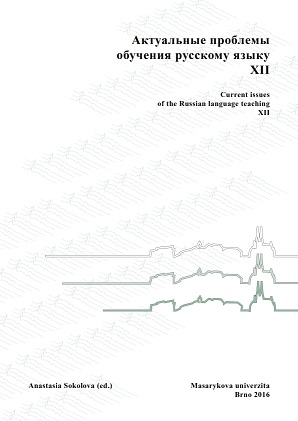The place of Russian in the linguistic identity structure of a modern Ukrainian
The place of Russian in the linguistic identity structure of a modern Ukrainian
Author(s): Olena Polovynko, Tetyana Shcheglova
Subject(s): Education, Comparative Linguistics, Sociolinguistics, Eastern Slavic Languages, Philology, Identity of Collectives
Published by: Masarykova univerzita nakladatelství
Keywords: linguistic identity; language situation; language policy; state language; title language; native language; surzhyk;
Summary/Abstract: The article deals with the factors that have influence on the linguistic identity formation of a modern Ukrainian. This article attempts to describe the language situation in Ukraine. On one hand, even after the independence proclamation and assertion of status of Ukrainian as the state language, a considerable part of population continues to speak Russian. On the other hand, restriction of the spheres of Russian usage, and insufficient Ukrainian language competence of representatives from various professional fields has led to the the promotion of a general expansion of a phenomenon known as surzhyk. One of the spheres of living, where Ukrainian takes the main position during independence on the territory of almost all state, is the sphere of education. Although, a consequence of this situation in many cases is pupils’ passive mastery of Ukrainian. Even after attempts of realizing serious state educational programs, we realistically do not have hopes to increase the level of Ukrainian mastery. At secondary schools Ukrainian is studied as a subject, but, according to the poll, taken by our scientists, it doesn’t influence on the quality and quantity of communication in Ukrainian in private and public life. Ukrainians of different ages, members of various social groups, and residents of some regions participated in the poll. This poll is empiric base of the given research. One of the results of this poll is that most respondents’ recognized the irrationality of the removal of Russian as a compulsory language from school curriculum. The poll results have helped to determine the peculiarities of linguistic identity of representatives of different generations, and show tendencies to form linguistic identity of Ukrainian pupils.
Book: Aктуальные прoблeмы обучения русскому языку XII
- Page Range: 237-246
- Page Count: 10
- Publication Year: 2016
- Language: English
- Content File-PDF

